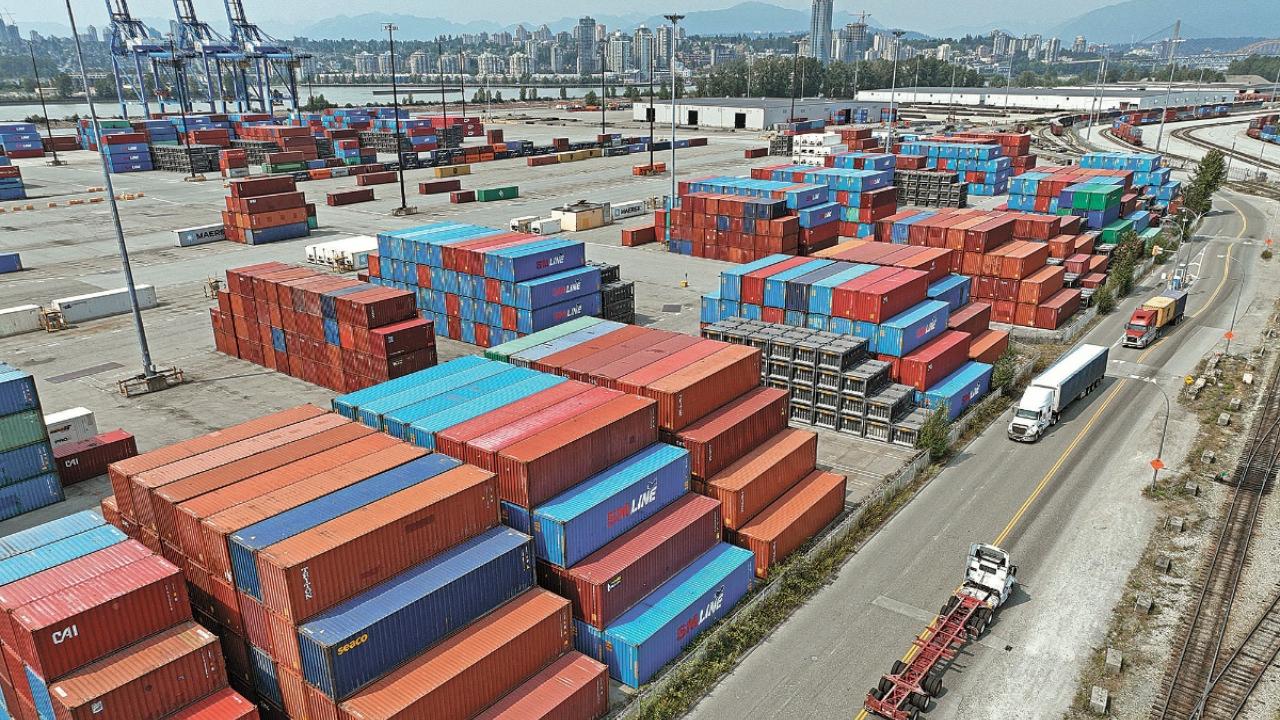
Canada is the second largest destination for Mexican exports of products, behind the United States.
Mexican exports to Canada broke records in 2022, 2023 and the first half of 2024, reaching US$9.189 billion in the latter period, according to data from the Ministry of Economy.
Canada is the second largest destination for Mexican foreign sales of products, behind the United States.
Following the Covid-19 pandemic, these exports grew at double-digit year-on-year rates, 17.2% in 2021, then 19.3% in 2022 and finally 15.6% in 2023.
Considering Mexico's main foreign sales destinations, Canada has been the most dynamic market in recent years.
From January to June 2024, these same shipments increased 9.5% over the same period of the previous year.
Like Mexico, Canada is strongly integrated into the United States economy, so that trade flows between the three countries occur on the basis of well-known markets and with extensive integration of value chains.
In fact, for the past 30 years, trade relations between the United States and Canada have been governed first by the 1989 United States-Canada Free Trade Agreement, then, with the inclusion of Mexico, by the 1994 North American Free Trade Agreement (NAFTA) and now by the 2020 United States-Mexico-Canada Agreement (USMCA).
According to statistics from the World Trade Organization (WTO), the main products exported by Mexico to the Canadian market in 2023 were: cars (US$ 4,334 million), motor vehicles for the transport of goods (US$ 1,961 million), certain auto parts (US$ 1,231 million), certain engines (US$ 1,100 million) and tractors (US$ 940 million).
Canada is one of the world's leading trading nations. Canada's exports have always reflected the country's large endowment of natural resources. Although Canada's exports have diversified over time, commodities remain a significant part of Canadian exports.
In 2023, Mexico imported from Canada mainly: certain auto parts (US$ 1,764 million), reaction initiators and accelerators and catalytic preparations (US$ 858 million), cars (US$ 508 million), pork (US$ 353 million) and wheat (US$ 275 million).
As a result of exports of US$ 18,010 million and imports of US$ 13,121 million, Mexico obtained a surplus in its merchandise trade balance with Canada of US$ 4,889 million in 2023.
In all three concepts, exports, imports and favorable balance, Mexico registered records that year.
Then, with imports of US$ 6,665 million, Mexico obtained a surplus of US$ 2,524 million in the first half of 2024 in that same trade relationship.
On Friday, the United States requested dispute resolution consultations with Canada on digital services taxes (DST) under the USMCA.
“The United States opposes unilateral taxes on digital services that discriminate against American companies,” said Katherine Tai, head of the U.S. Trade Representative for Canada (USTR), in a statement.
“USTR is taking action today to address Canada’s discriminatory policies,” Tai added. “As we pursue these consultations, we will continue to support the Treasury Department in the OECD/G20 global tax negotiations to provide a comprehensive solution to the challenge of digital services taxes.”
The DST applies to companies or groups with annual global revenues of €750 million (US$828 million) or more and digital services revenues in Canada of more than CAD20 million (US$14.8 million).
Canada expects to raise about $875 million a year from the DST. The DST is retroactive to January 1, 2022, and businesses will begin paying the tax on June 30, 2025.









